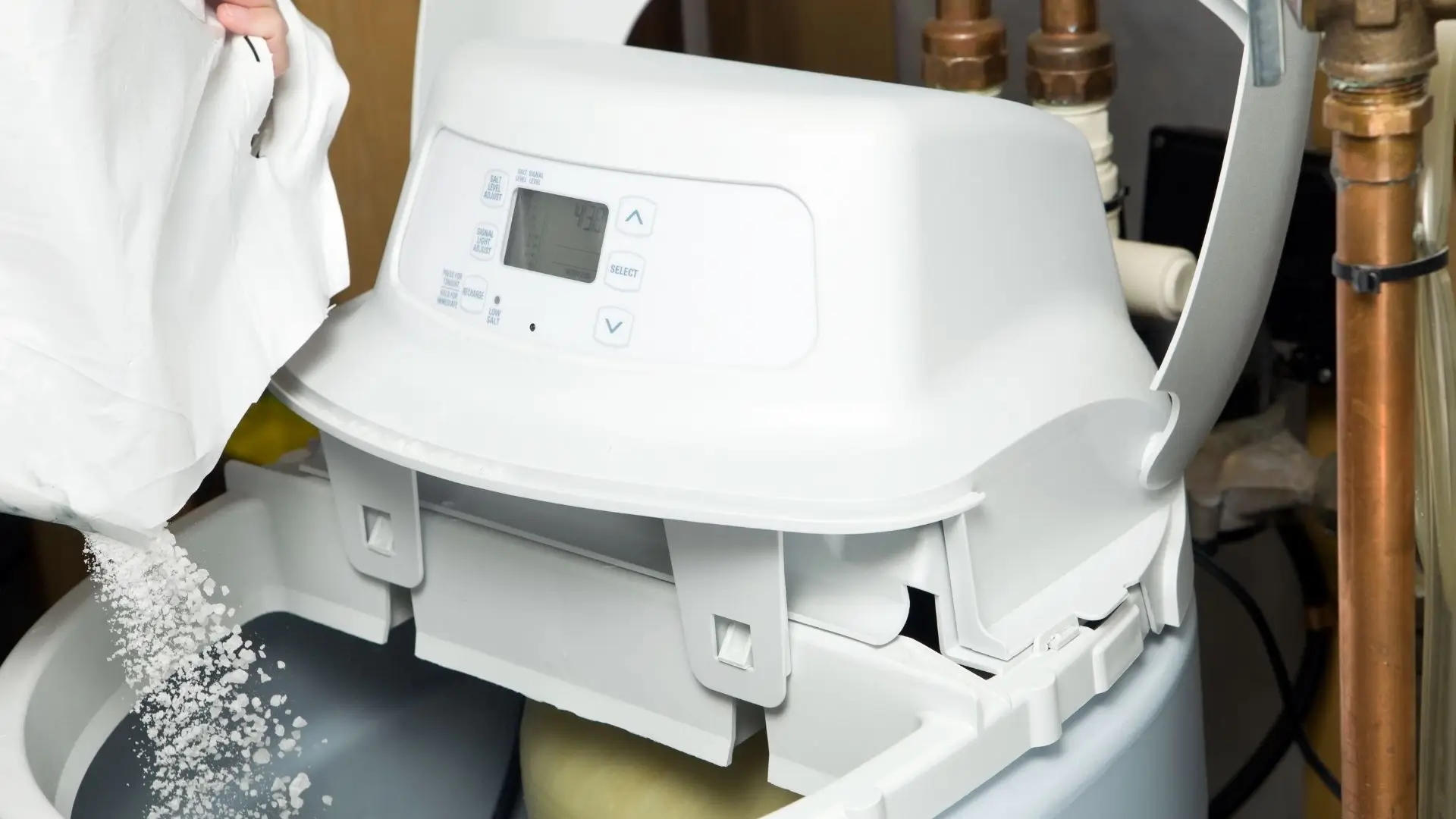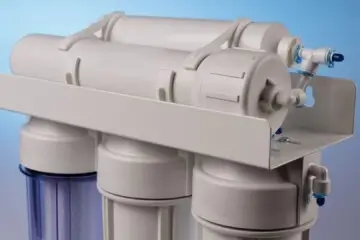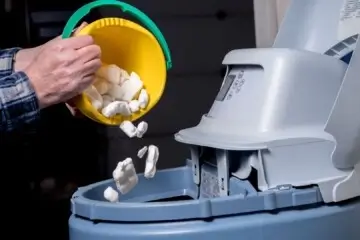Selecting the appropriate water softening system is crucial for optimal performance. Professional installation by a plumber and correct placement ensure maximum efficiency. Regular maintenance, such as monitoring salt levels and water quality, is essential to protect your appliances and plumbing. Hard water, which contains calcium and magnesium, can lead to scale buildup, reducing efficiency and increasing energy consumption. Understanding how ion exchange works in water softeners can help address these issues and ensure high water quality. Investing in water softening not only enhances appliance performance but also improves overall comfort and health. By making informed decisions, you can enjoy the advantages of softened water.
Contact CAN Plumbing and Drainage for all your Water Softener Needs
When it comes to addressing your water softener needs, contacting CAN Plumbing and Drainage in Mississauga is the ideal choice for expert assistance. Hard water issues in your plumbing system can be effectively managed with a water softener. Hard water, which contains high levels of calcium and magnesium, can result in limescale buildup, reduced soap efficiency, and damage to your appliances. Water softening involves removing these minerals through ion exchange, resulting in softer water that is gentle on your skin and plumbing fixtures. Our local plumbing company in Mississauga specializes in installing, repairing, and maintaining water softeners to ensure your home has access to high-quality soft water. Rely on their expertise to optimize your plumbing system and enjoy the benefits of softened water.

CAN Plumbing and Drainage Services Related to Water Softeners
CAN Plumbing and Drainage in Mississauga provides a variety of services for water softeners, including installations, replacements, and repairs. Count on their expertise to ensure your water softener system operates efficiently and effectively. Contact us for all your water softener needs.
Water Softener Installations
When installing a water softener system, it is essential to have precise knowledge and expertise in plumbing and drainage services. Choosing the right water softener for your needs is crucial for optimal performance. A professional plumber can assist you in correctly installing the water softening system to ensure it works efficiently. The installation process involves connecting the water softener to your home’s water supply line and drainage system. Proper placement is key to maximizing the benefits of the water softener, and a plumber can recommend the ideal location based on your home’s layout and plumbing setup. Relying on professionals for water softener installations guarantees a seamless and effective setup for your home water softeners.

Water Softener Replacements
Timely replacement of water softeners is essential for peak performance and efficiency, requiring expertise in plumbing and drainage services. Maintaining the effectiveness of softener systems in removing minerals that cause hard water is crucial. As water softener salt depletes over time while softening water, periodic replacements are necessary to ensure continuous operation. The regeneration process of a water softener, where the system cleans itself by flushing out accumulated minerals, is a key aspect of its functioning. Expert handling of this regeneration process during replacements is essential for optimal performance. Plumbers specializing in water softener replacements must have a deep understanding of water softener uses and the intricacies of the regeneration process.
Water Softener Repairs
Effective maintenance of water softeners through timely repairs is crucial for ensuring optimal performance and longevity, particularly in the context of plumbing and drainage services associated with these systems. When addressing water softener repairs, it is vital to inspect the appliance for any issues in the regeneration process. Common problems may include clogged pipes, faulty valves, or low sodium levels. Additionally, assessing the condition of the resin beads is essential, as any signs of wear and tear can impact the softening efficiency. Timely resolution of these issues through proper water softener maintenance can prevent further damage to the system and ensure smooth operation. Regular upkeep and necessary repairs will not only prolong the lifespan of the water softener but also maintain the quality of softened water in your household.

Common Water Softening Methods
One of the most commonly utilized methods for water softening involves ion exchange systems. This process entails the exchange of hard water minerals such as calcium and magnesium ions with sodium ions. Water softeners incorporate a resin bed where this ion exchange occurs. During the regeneration cycle, the resin bed is rinsed with a brine solution to recharge it for further softening. This method effectively eliminates the minerals responsible for water hardness, ensuring that the water passing through your softening system emerges softened and ready for use. Understanding the ion exchange process is crucial for maintaining the effectiveness of your water softener and safeguarding your household appliances from the detrimental effects of hard water.

Impact on Household Appliances
Understanding the impact of hard water minerals on household appliances is crucial to appreciate the significance of water softening. Hard water, rich in calcium and magnesium ions, can cause scale buildup in appliances such as washing machines, dishwashers, and water heaters. This accumulation of scale reduces the efficiency of the appliances, leading to increased energy consumption and potential damage over time. By utilizing a water softener that employs ion exchange to eliminate these hardness minerals, you can prevent scale buildup and ensure optimal performance of your household appliances. Softened water not only enhances water flow within the appliances but also extends their lifespan by mitigating the negative effects of hard water.
Maintaining Softened Water Quality
Ensuring the quality of softened water is essential to maintain the efficiency and longevity of your household appliances. Following the ion exchange process in a water softener, where calcium and magnesium ions are replaced with sodium ions, it is important to regularly monitor the system. Check the salt levels in the brine tank to ensure there is enough salt for effective regeneration cycles. Periodically test the water quality to confirm that hardness levels remain low. By consistently maintaining your water softener, you can prevent the negative effects of hard water on your appliances, plumbing, and skin, allowing your household to continue benefiting from softened water.
Understanding Hard Water
After ensuring the quality of your softened water, it is essential to grasp the characteristics and implications of hard water on your household. Hard water contains high levels of minerals like calcium and magnesium, which contribute to its hardness. This hardness is measured in relation to the concentration of these mineral ions present in the water. When hard water is heated, it forms scale buildup in pipes and appliances, reducing their efficiency over time. The process called ion exchange is utilized in water softening to remove these mineral ions from hard water by replacing them with sodium ions through a brine solution. By softening water, you can prevent the negative effects of hard water, such as scale formation and reduced soap lathering ability, improving the overall quality of water in your household.
Benefits of Water Softening
Water softening offers significant benefits by improving the longevity and efficiency of your appliances and plumbing systems through the removal of mineral buildup. Hard water contains minerals like calcium and magnesium that can accumulate and form limescale deposits, leading to clogged pipes and reduced appliance performance. By utilizing a water softener, which typically employs ion exchange to replace calcium and magnesium ions with sodium ions, you can experience the advantages of softened water. Softened water not only prevents mineral buildup in your appliances but also prolongs their lifespan and enhances overall efficiency. Moreover, softened water results in cleaner dishes, softer skin and hair, and reduced soap scum. Embracing water treatment with a water softener brings numerous benefits to your household and daily comfort.
Frequently Asked Questions About Water Softeners Near Me
Can Water Softeners Remove All Types of Contaminants From Water?
Water softeners are designed to primarily target minerals like calcium and magnesium, rather than all types of contaminants. While they can help improve water quality by reducing water hardness, other filtration systems are better suited for removing a wider range of impurities.
How Often Should I Replace the Resin in My Water Softener?
You should replace the resin in your water softener every 8-10 years, depending on usage. Regular maintenance ensures optimal performance. Refer to the manufacturer’s guidelines for specific instructions on when to replace the resin.
Are There Any Health Risks Associated With Using a Water Softener?
Using a water softener does not pose significant health risks. However, individuals on low-sodium diets should be cautious of excess sodium intake from softened water. It is advisable to conduct regular maintenance and monitor water quality to ensure safe usage.
Can a Water Softener Be Installed in an Apartment or Rented Property?
Yes, you can install a water softener in an apartment or rented property. Consider portable or compact models for easy installation. Make sure you have landlord permission and understand any lease restrictions before proceeding with the installation.
Is It Possible to Over-Soften Water and What Are the Effects of Doing So?
Exceeding the recommended levels of sodium or potassium ions can result in over-softening water, causing a salty taste, pipe corrosion, and decreased soap effectiveness. Maintaining a balanced approach to water softening is crucial to avoid these issues.
Please rate our website
Let us improve this post!
Tell us how we can improve this post?


